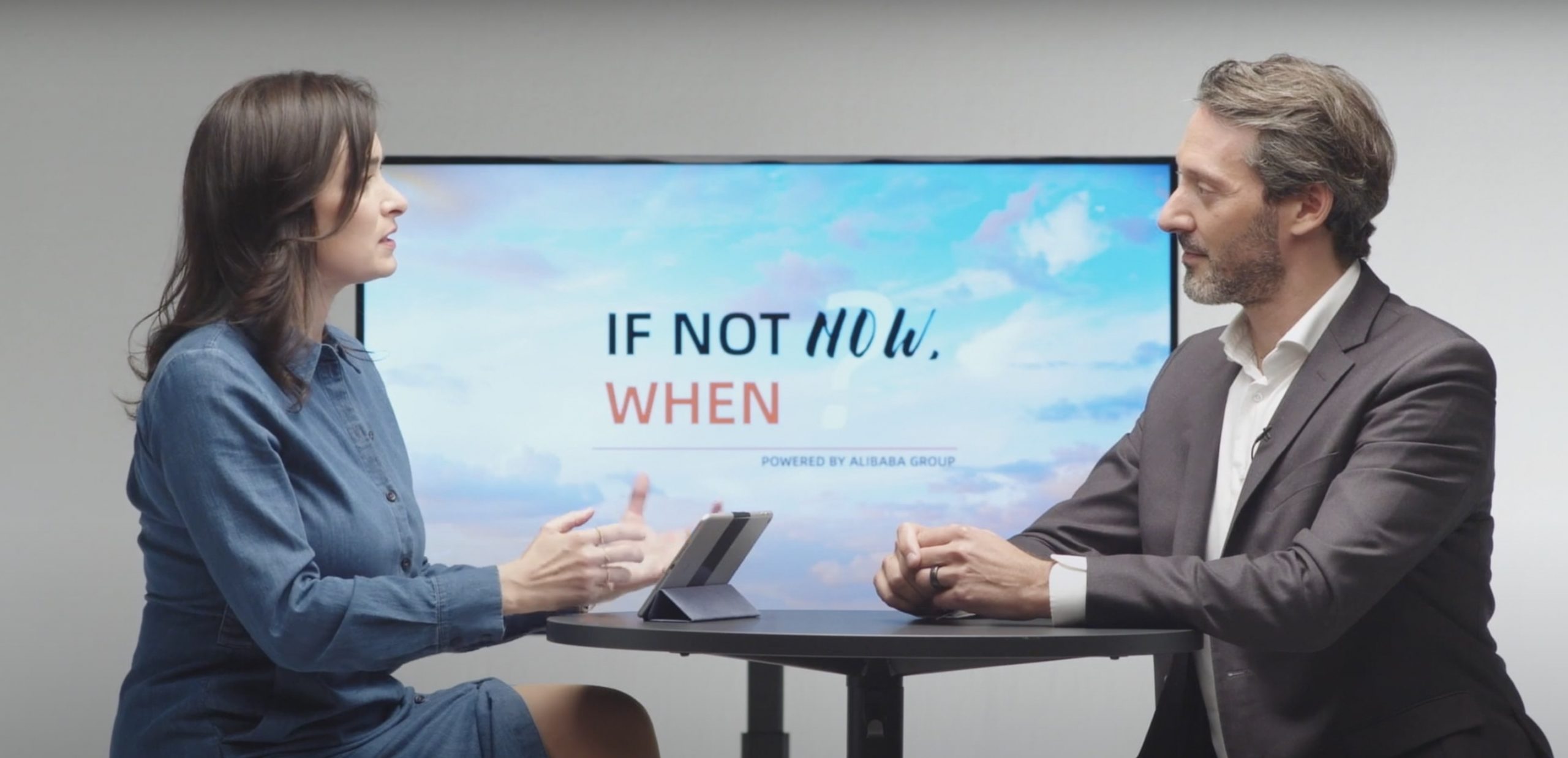
The Covid-19 pandemic has accelerated forces reshaping the retail industry over the past year, leaving retailers no choice but to adapt or transform.
Out of a crisis comes creativity and urgency. In an interview series called “Conversations in Europe: If Not Now, When?,” Alizila talked to leaders of six European businesses who have quickly redirected their business model and improved their digital footprint to reach consumers that are increasingly shopping online.
Expect the Unexpected
The travel and hospitality industry has not previously weathered a storm like 2020’s. It has been challenging to plan things in the travel industry, while in the past businesses were making predictions based on data and experience.
“Now, everybody’s booking pattern is last minute,” Anne Browaeys, chief marketing, digital and technology officer at Club Med. “We’re dependent on border-opening decisions and sanitary conditions, which changes the way you think about marketing in tourism. Because everything can change in a few days’ time.”
Traditionally known for all-inclusive buffets and off-resort excursions, Club Med’s task was to continue providing experience to customers while keeping high-standard safety protocols in place. The key elements they focused on were continued engagement and communication with customers, while maintaining physical distance. Club Med calls this “physical distancing.”
One of the outcomes was a more active use of livestreaming sessions, including a collaboration with Fliggy, Alibaba Group’s travel-services platform.
“It’s a new way to create an experience. An experience that will translate into a physical one, which we hope will happen very soon,” said Sebastien Badault, Alibaba’s managing director of France.
Websites are not Informational Repository but Experience
And with the growing use of online shopping during Covid, it may have felt like as if brick-and-mortar stores have a gloomy future.
However, the cycle of several lockdowns has uncovered a unique consumption pattern, one which stresses the increasing interest in seamless experience between the two channels.
“We need to rethink our web experiences so that they’re application-like. We still treat websites as information repository, whereas when you open an app like Uber, it’s not an in information repository. It’s an experience,” said Ian Rogers, chief digital officer at LVMH.
This trend was already there, but accelerated under Covid restrictions, according to Badault.
“We don’t need to separate physical stores and online stores. We need the mix between the two because they’re the same customers at the end,” he said.
For luxury brands like LVMH, a blending of online and offline channels and an emphasis on enhancing the online experience during Covid were an opportunity, allowing the company to target niche customers with a quality-driven approach, rather than mass market based on a volume-driven strategy.
“It was nothing new for LVMH and luxury brands, which have always focused on quality and craftsmanship. The good news for luxury brands in this period is that they don’t really need to make a pivot in terms of what they do(whether online or offline). They’re already in consume-less and consume-better business by definition,” said LVMH’s Rogers.
Businesses Forced to Listen to Consumers
2020 has forced brands to rethink and develop deeper, more-meaningful engagements online through the power of storytelling, said Marie-Laure Sauty De Chalon, founder of marketing agency, Factor K.
“Consumers have always attempted to interact with brands (online), but brands didn’t believe in the digital transformation, or they had a transformation plan that was not strong enough. Now, we have no choice,” she said.
Listening to customers’ needs, being more flexible and changing everything from a brand’s perspective to a consumer’s perspective are important.
The messages from the six business leaders were clear — Through unpredictable times, there is always room to adapt and change. Crisis can sometimes create new opportunities and even new business models for those who understand what consumers want.
Click here to watch the full series of “If Not Now, When?”
Sign up for our newsletter to receive the latest Alibaba updates in your inbox every week.




